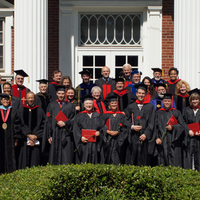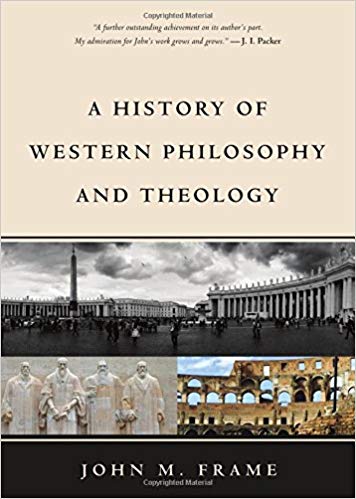Recommended Reading
From Amazon.com: "Christians should evaluate philosophy by biblical criteria. This will shed greater light on the developments in the history of philosophy and better prepare us for the intellectual challenges of our time. The fall of Adam brought intellectual as well as moral corruption on the human race, and the effects of the fall can be seen in the work of philosophers, most of whom try to understand the world autonomously through reasoning apart from God's revelation. Some philosophers have appealed to God's revelation, but their work has often been compromised with the wisdom of the world. Revelation should inform reason, and not the other way round. In the past, even Christian theology was corrupted by the movement toward intellectual autonomy, creating the tradition of liberalism, which has unhappily dominated academic theology down to the present day. But there is hope a new generation of Christian thinkers take God's Word seriously. Frame's unique new contribution augments that process."
If you purchase from one of our Amazon.com links, we receive a small commission that helps support this site and does not cost you any extra.
Lexington Theological Seminary
Lexington Theological Seminary Quick Facts
Denominational Affiliation
Christian Church (Disciples of Christ)
Founded
1965
Theological Orientation
Moderate
Degrees Offered
MDiv; MTS; MPS; DMin
Number of Students
c. 87
Tuition Costs for 2018 - 2019
$480/hr
Location
Lexington, KY
School URL
lextheo.edu
Introduction to Lexington Theological seminary
Lexington Seminary has a rich and storied history. Originally part of Kentucky University, the school moved to Lexington as part of its merger with Transylvania University (which retained the Kentucky University name until 1908). In time, the seminary would gain its own charter and change its name from The College of the Bible (one of the colleges under the purview of Kentucky University) to Lexington Theological Seminary in 1965.
Though the seminary has undergone significant changes in recent
years, its commitment to the church and its leaders is unwavering. The
seminary has long held an ecumenical focus with nearly 50% of its
student body coming from traditions other than the Disciples of Christ
or United Church of Christ. The seminary's online education models allows students from a wide variety of backgrounds to receive a seminary education where it might not otherwise be feasible. The seminary's practical focus is on the student's local congregation so the theory and practice of ministry are intertwined.
Academic Life
Due to financial woes sustained during the economic decline of 2008, the seminary moved to offering their courses solely through primarily online instruction as a cost-cutting measure, though there are intensive on-site sessions offered as part of the programs. Currently, the seminary offers the MDiv, MTS, MPS, and DMin programs.
Student Life

Since 2011, LTS has moved toward a primarily online-only education model. As such, there is no dedicated campus space for student events or campus-oriented student groups, though students will meet for a few intensive courses during their enrollment. That being said, LTS takes great care to ensure that students are grouped into online communities that provide support for one another. Students also work in and with their local church throughout their program to ensure that their seminary studies have a practical focus.
Housing
Since Lexington Seminary has moved to a "virtual" campus with most of its offerings online, there is no housing offered.
Financial Aid
LTS offers a small number of full-tuition scholarships to select students and several 50% scholarship awards to Disciples of Christ or United Church of Christ students who are under care in their local region. Students are also eligible for Federal Direct Unsubsidized Student Loans.
Location
Review Lexington Seminary
Share Your Seminary Experiences!
Did you attend or are you attending this school? Please help future students by sharing your experiences, pro and con. Thanks!

